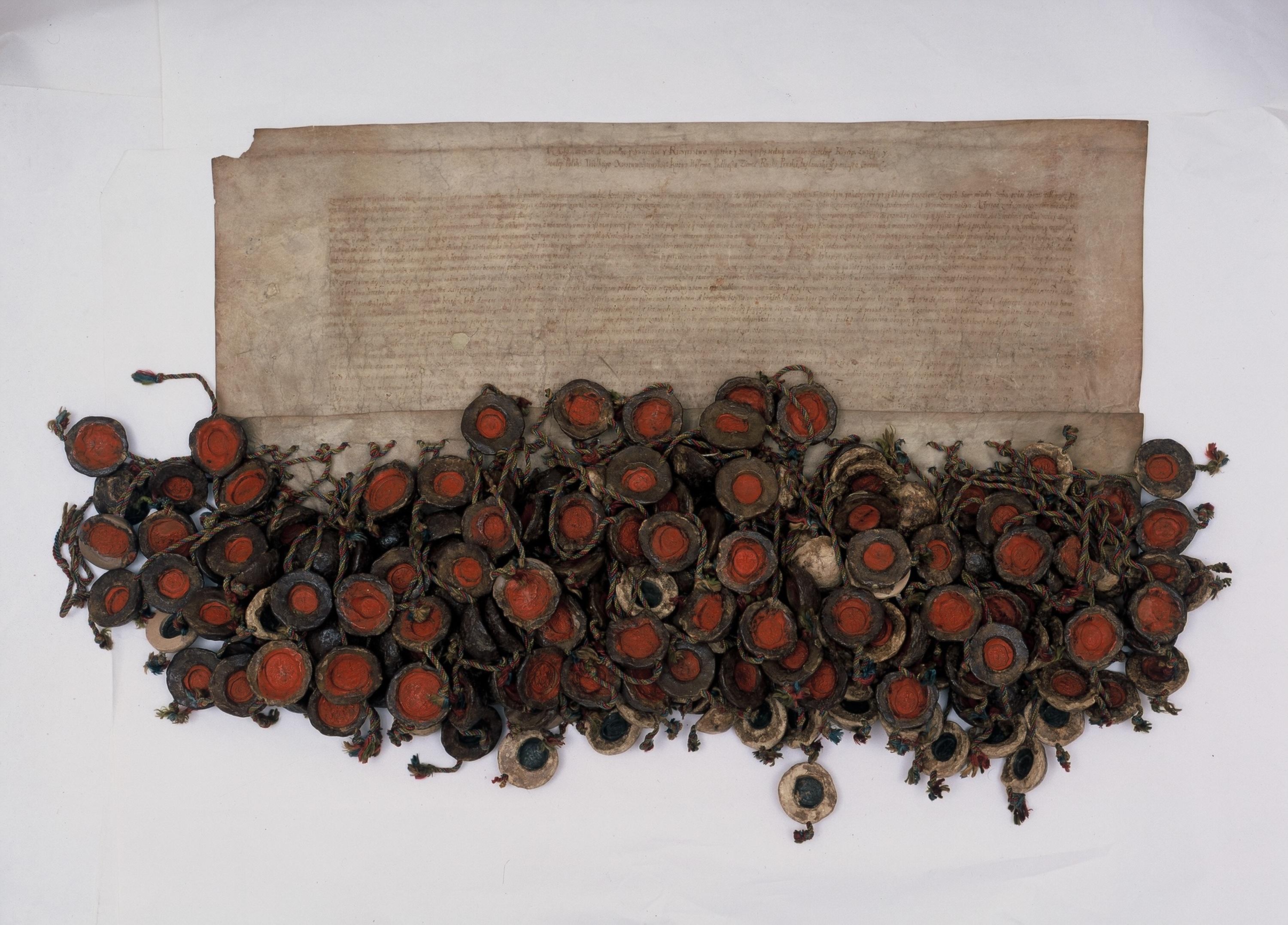The declaration of the Warsaw Confederation was approved on January 28, 1573, at the Convocation Sejm held in Warsaw after the heirless death of King Zygmunt II August (Sigismund II Augustus) and prior to the first free election of a monarch. The Sejm was convoked in order to lay down the principles for electing the monarch, to carry out a review of the Rzeczpospolita’s constitutional arrangements, and to determine the bases for their possible amendment.
The signatories of the ceremonious document – affixed, as seen below, with numerous seals – regulated the most urgent matters. One of them is dealt with in points 3 and 4 – namely, the guarantee to uphold peace between the adherents of the diverse confessions then practised in the Rzeczpospolita (Commonwealth) The signatories mutually swore to oppose any and all attempts to initiate persecutions for reasons of religion. At the same time it was stressed that religious matters could not be used as a pretext for undermining the social order.
Of surpassing significance for the origins of the provisions upholding religious freedom was the fact that among the leading candidates to the vacant throne was the son of the French king, Henry (de Valois) who had been charged with having directly participated in the slaughter of French Protestants (Huguenots) during the St. Bartholomew’s Day Massacre of August 23-24, 1572 in Paris. In accordance with the stipulations of the Warsaw Confederation, when Henry indeed was elected to the throne of the Rzeczpospolita (in May, 1573), the Polish delegation that traveled to France demanded of the king-elect that he swear an oath to uphold the principles of the Warsaw Confederation. Henry did so in Notre Dame Cathedral in September that year.
The fact that freedom of religion was made part of the Henrician Articles attests that the provisions of the Warsaw Confederation were to remain binding indefinitely, rather than only during the interregnum and Henry’s reign.





